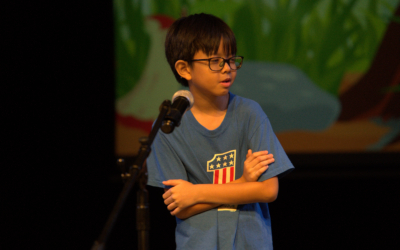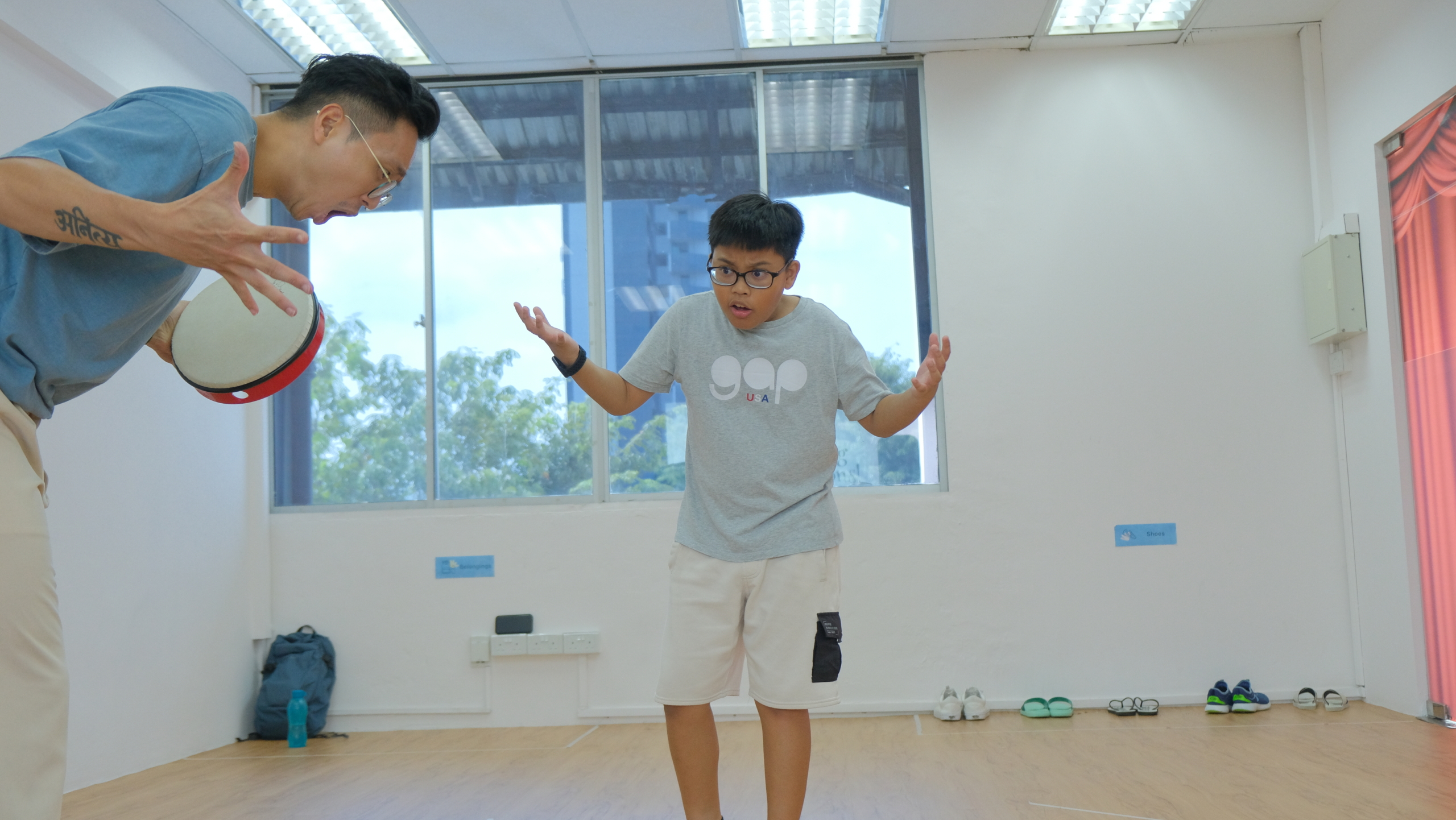Phonics Vs. Drama Classes
You’ve probably heard about how phonics and drama classes enhance children’s language development. What’s the difference? Which is better?
Both programmes enhance language development but target different aspects of it; deciding which is more beneficial depends on your child’s needs.
Let’s compare the two.

Developing good listening skills and speaking fluently will help children with figuring out letter sounds for reading or writing. That’s where drama classes come in!
Drama classes enable children to express themselves creatively and communicate with confidence and clarity. Drama exposes children to language-in-use, introducing grammar, vocabulary, sentence structures and how to use language in relevant contexts.
What goes on in drama classes?

In drama classes, children don’t just recite words from memory. Instead, they learn to express and deliver a message meaningfully. Children work on articulation and vocal projection to ensure that their speech is clearly and effectively conveyed. Apart from facial expressions and body language, children also explore the use of pace, pitch, tone, and phrasing in speech.
Equally important in drama classes is the development of listening skills. Music is incorporated in classes to boost children’s ability to focus and distinguish between sounds or changes in tempos. This improves auditory discrimination, which may eventually heighten phonological awareness—that is, differentiating ‘funny’ from ‘fun’ or recognising words that begin with the same letter sound, to draw a couple of examples.
Finally, the immersive, social and language-filled experience of drama classes offers countless imaginative and real-world scenarios for children to practise communicating with peers. When children dramatize a scene together in class, they’re not just performing a script. They practise taking turns and reacting or responding to each other’s lines and expressions.
Which programme would you pick?


